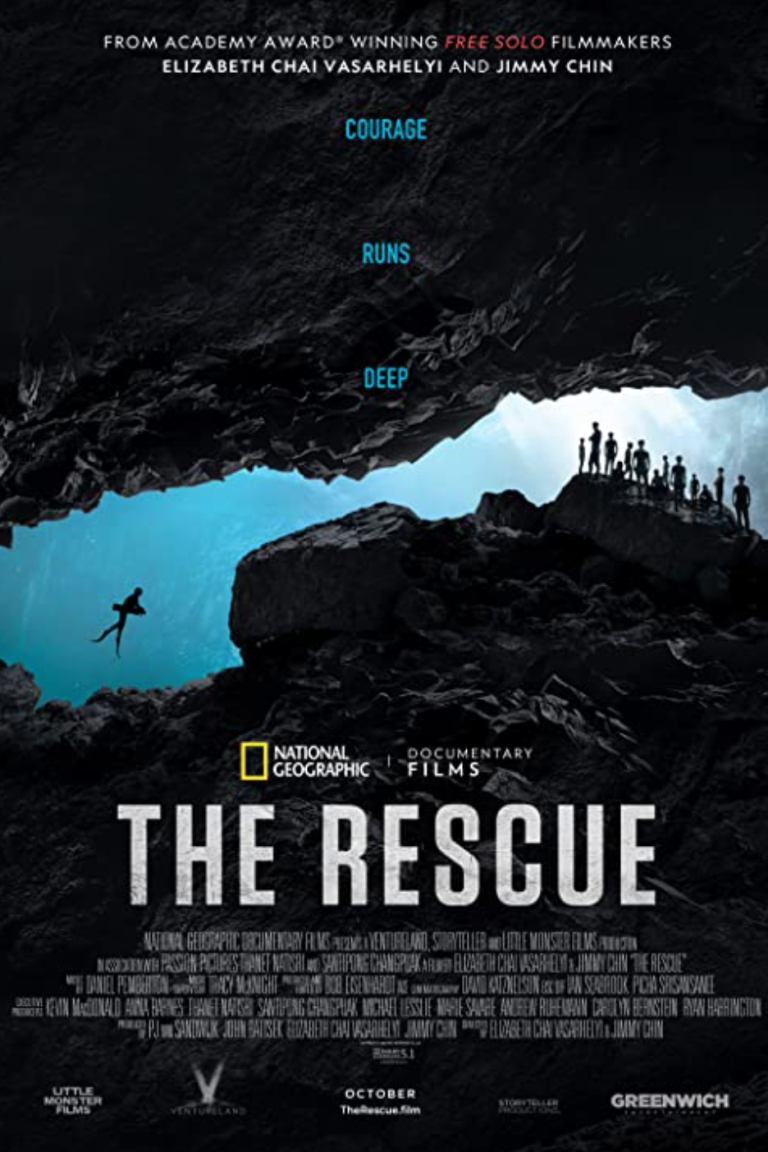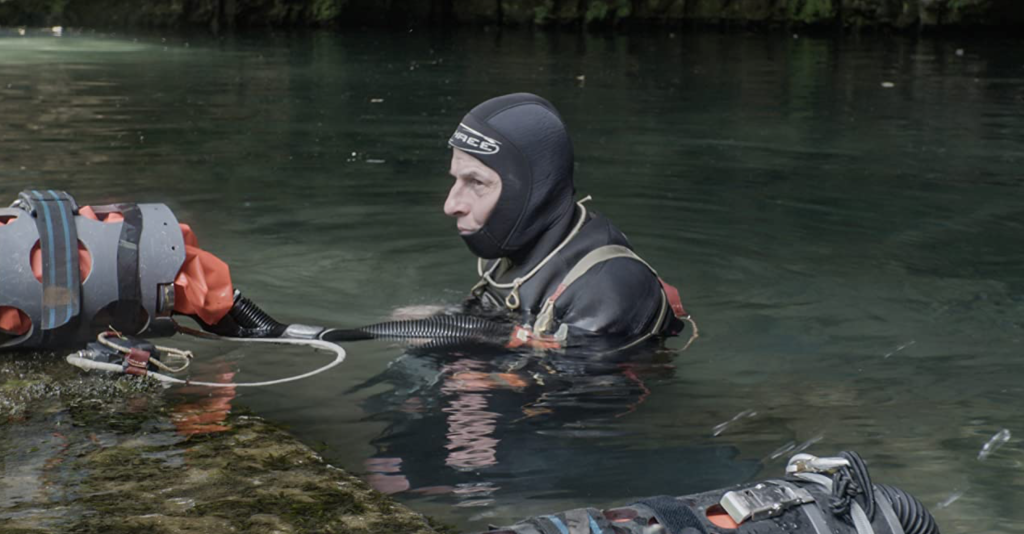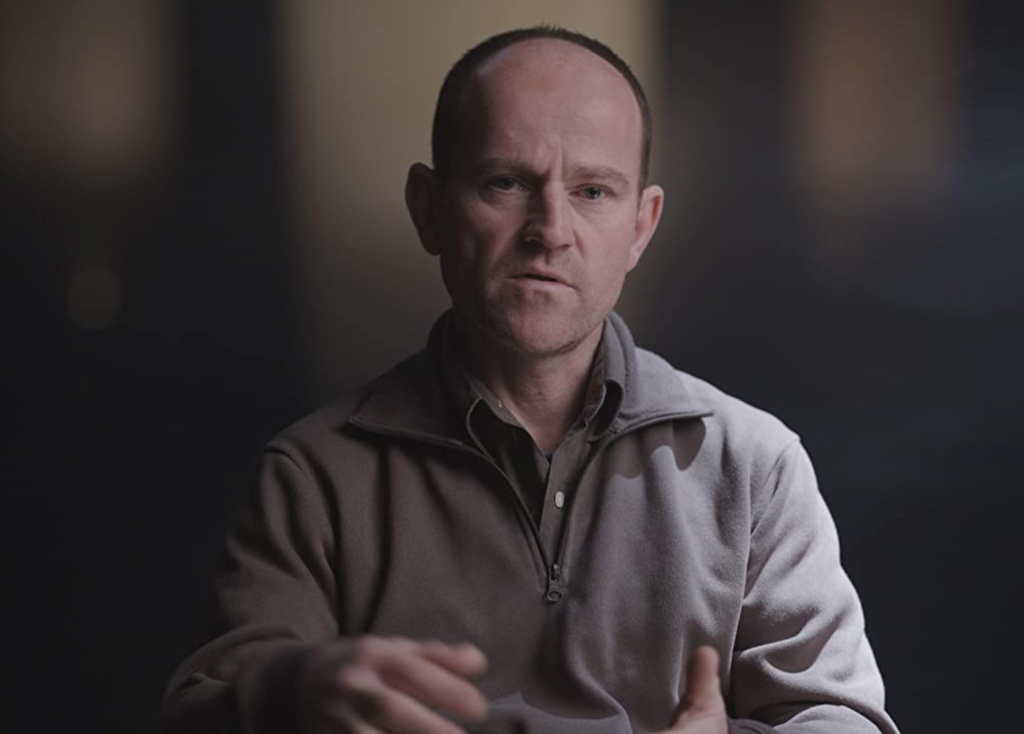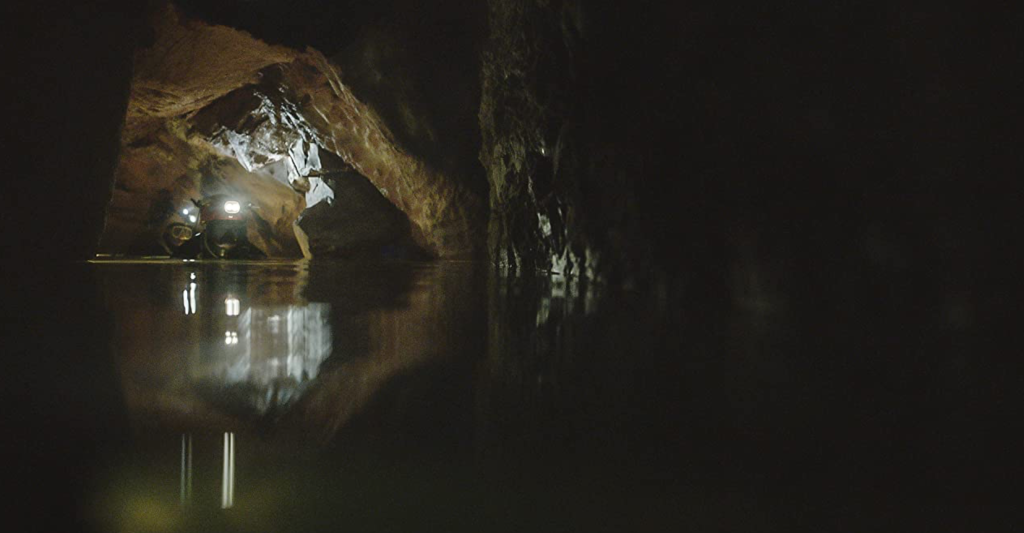
Synopsis : The Rescue chronicles the enthralling, against-all-odds story that transfixed the world in 2018: the daring rescue of twelve boys and their coach from deep inside a flooded cave in Northern Thailand. Using a wealth of never-before-seen material and exclusive interviews, E. Chai Vasarhelyi and Jimmy Chin keep viewers on the edge of their seats as they bring alive one of the most perilous and extraordinary rescues in modern times, shining a light on the high-risk world of cave diving, the astounding courage and compassion of the rescuers, and the shared humanity of the international community that united to save the boys.

An Exclusive Interview with directors Jimmy Chin and Elizabeth Chai Vasarhelyi
Q : Did you tackle this subject matter because you thought it would be an appropriate time, because we are facing covid problem, but the world come together for a common goal, in a way very similar to the Thai Cave Rescue Incident?
Elizabeth Chai Vasarhelyi : The film in a way bittersweet thing for us, if you think back to the summer of 2018, it was a pretty difficult moment in the world. Politically forget the past three years, right?
The story and that people from every different part of the world, different languages, different religious beliefs coming together to save between strangers and also achieving the impossible. But the sweet thing that in the past three years, like it’s only become more poignant because of Covid, but always compelled us about the story. It was this idea of like the more absolute morality of it. If you could do it, you could save somebody’s kid. Yeah. And you had everything to lose.
But additionally, it was also about like doing the right thing. And I think if we all did the right thing and did that, we’re generous, like it would be in a very different place to COVID across the world and certainly in the U S you know, as it’s a very pertinent movie, but that kind of makes us sad and happy.
You know what I mean? Like, it’s, it’s about our common humanity, but I wish it wasn’t.
Q : After I’ve seen this film, there’s a lot of things in common between the mountain climbing(Which Jimmy was doing in his film, “Meru” and “Flee Solo)and cave diving, what are that similarity that you find fascinating?
Jimmy Chin : I think there are a lot of parallels between cave diving, which is the most extreme and most dangerous high stakes discipline within that. I’ve worked with climbers and really the extreme climbers, multiple disciplines in climbing like three solo is key. Soloing is clearly one of the most dangerous and high stakes discipline within climbing.
And so as high as the two big wall climbing was, are very extreme. And I think they draw a certain type of person, someone that loves, isn’t afraid of the unknown embraces the unknown is highly calculated around risk and managing risk and assessing risks. And also they have people have to have like a really deep sense of exploration.
A lot of these things are doing things nobody else has done before or going places nobody else has been before. And so there’s a lot of parallels and I think characters like that are really interesting examine or explore, as you might say, because they live very intentional lives.
It’s not like you can just dabble in these types of things. Like you really have to devote your life to it. In the way that, so I guess what I’m saying is that they have chosen very clearly and to do these things and that sort of clarity to me is very interesting. And I think also very interesting to check.

Q : Obviously, there weren’t any media that allow inside the cave, so you have to recreate what the divers did inside the cave, how did you balance with news footages and recreating footage? Could you talk about that?
Elizabeth Chai Vasarhelyi : We were very lucky because some of the most critical scenes on camera, from Dr. Harris is footage of anesthetizing, their children from the found footage of the oxygenator going off. And then from this footage that we found that we were able to acquire from the timing, because the whole world watched it.
There’s much news footage. It was all from a distance outside. And for us, like, it was all about what happened inside. And so we’ve had to do the reenactments to show what happened beyond chamber three underwater, not necessarily over-water, but what was really interesting was like, this is the first song we’ve made that we weren’t there during the events.
And the reenactments were more like demonstrations for us in that the British divers were able to show us exactly what they did. As a mother, as a filmmaker, there’s nothing like I didn’t understand the stakes until I understood the feeling of witnessing someone, binding the child’s hands behind their back, binding their feet together and push their head under water. So it was about teaching us what they did as well as filming somebody to allow other people to understand what they did.
Q : I heard that you went to the studio in England to recreate the scenes. What challenges do you face while recreating these scenes? Because it’s in a studio, but at the same time, you have to be very realistic about it.
Jimmy Chin : I mean, I think for us, the challenge really was to create, to make it as accurate and authentic as possible, because that was really important to us. And I mean, I think we really, we wanted to have them demonstrate how they actually did the rescue, but it was much more specific than that.
What you’re seeing on screen is specific to the moments we’re actually talking about, so whether or not they’re going between different chambers, like in the movie, whatever chamber we’re showing them that, it’s pretty authentic to show, it was really important to us. So you only wanted to bring people into the cave and make it feel very visceral and draw people into the moment.
But there’s an obvious challenges of filming underwater, which is not easy and time-consuming, but it’s, we really wanted to make it one further level, which was to make it accurate and authentic.
Q : How do you approach the divers to open up? They seem to me, enjoying the cave diving by themselves. And not so social type, but some of them were talking about bullied when they were children?
Elizabeth Chai Vasarhelyi : I think that everybody who participate in the rescue, emerge as a better person. So like the divers they’ve spent so much time doing this very centric minority groups on the weekends, like suddenly became a calling. They could save these children. So I think it was something they wanted to share, even though they were very uncomfortable sharing.
Q : Were there any reason that you didn’t break down to explain much about the children and coach, why was that? At the end, it seems to work it out better, but I was wondering why was that?
Elizabeth Chai Vasarhelyi : This film is just someone was always about the obstacles and challenges.
And one of those great challenges was that acquire the life rights…

Q : Oh, so they’re making a feature film or something?
Elizabeth Chai Vasarhelyi : They’re making a feature and I think maybe a documentary, and this is not something you necessarily deal with very often in nonfiction, but that’s the situation I walked into. And I’m very proud of Thai Navy Seal. And it was one of the reasons why we passionately because all the footage you see of the children, except for the first 30 seconds, when they say it’s all 13, and it’s never seen before, like the world has never seen that motivational cheer, or has ever seen their first. Them in the blankets, but Dr. Backpack arrives, like all of that stuff, like when they’re actually extracted that and you see the 200 people moving a stretcher across them, that’s all like never been seen before in the world.
And it was one of the reasons why I pursued it. And like also when I went to Thailand, I met some of the children and coach act.
Cause because we weren’t allowed to film them, but we could in like the right thing to do.
Q : I was surprised when the divers found those kind in a cave, it was 10 days after they’re missing. How could they survive and do they have anything to eat in there? What are their tactics to survive in the inside the cave?
Jimmy Chin : They had no food, really, there was water in the submerge cave, but they had no food. And I honestly believe I’ve had this experience, when you were agitated, you actually burn a lot of calories.
Even if you’re not moving, but I truly believe that the coach being able to somehow to meditate and bring down their heart rate and bring down their anxiety, clear with them that burn a lot less energy.
Also the belief that these are rural kids face a lot of hardships in their lives and may a certain level of, kind of enduring hardship, short scenario. It didn’t have any food for 10 days. You can actually survive quite a bit longer without food or water. But very, very difficult.

Q : In the film, they talked about the judicial system in Thailand. If any of the children was died in the cave, what kind of judicial problems that divers could face?
Elizabeth Chai Vasarhelyi : All the rescuers truly believe that saving one child and they really thought they would save everybody, just testifies, like their courage. I believe there was a very realistic thing back then. So, additionally, I don’t have any decision maker in Thailand because it was my idea, are you going to be responsible for killing children and they’re responsible and saving the children and then they died. Like, it was an impossible situation. So I think the risk was probably across all decision makers and sitting on the divers. And a very public opinion is fast it’s the same thing would happen anywhere. So I think it was just one of the risks. I don’t think it necessarily just pertained national divers. I think everyone involved. At a great risk about making a decision to courage to actually go along with them.
Jmmy Chin : My opinion, the plan was so outrageous on paper. We read the plan and then you’d say that’s completely outrageous, right? I mean, it’s hard to say what would have happened, but there’s always a scapegoat, somebody to blame. Although I think it would be spread across because everybody, you know, would carry some of the burden of that, but you know how it works, you never know, right? Like opinion could have just the divers, it’s hard to say, but I do feel like someone would have been blamed and I think so hard to justify that plan. If something had gone wrong
Q : What do you want the audience to take away from this film?
Elizabeth Chai Vasarhelyi : As we make these small dark room, editing our footage for like months and months, you just only hope for the same way you feel, right? And I think really this movie, we just audiences still respect and admire this idea of absolute morality that the divers.
And saved together that’s everything, generally try to save a stranger that I’ve never met before. And again, this idea of like being generous or doing the right thing or being your best is only gained within poignancy as a dependent it’s gone on. I just hope for common humanity and like the very special thing, it would be human. Where do you tend to be generous where you can make moral decisions and you can do something that doesn’t mean necessarily strict. An idea, like what is the human life worth.
Q : Jimmy, you have something to say?
Jimmy Chin : I think she’s nailed it. I think it is. It’s about the common humanity and inspire potential to be generous, you know? And I think given the times we forget that about each other and ourselves.
Here’s the trailer of the film.

